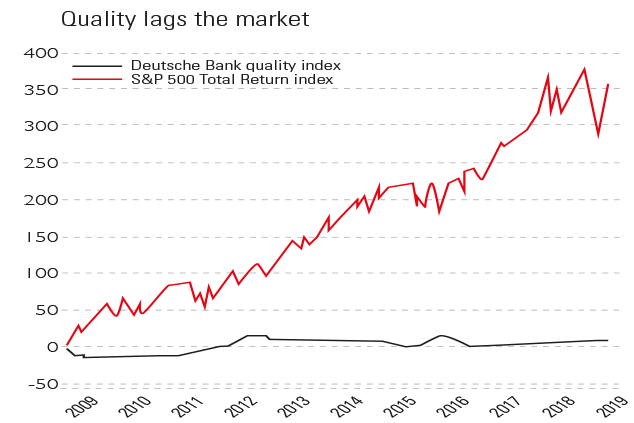
“A rising tide lifts all boats,” says Tim Price in a Price Value Partners note. This chart is a stark illustration of the effect of a decade of rock-bottom interest rates and quantitative easing (money printing).
The liquidity flood has ensured a 360% increase in the S&P Total Return index, which includes reinvested dividends. But an index constructed by Deutsche Bank, which tracks 1,000 top-quality global blue chips – chosen for their high scores in key metrics such as profitability – has climbed by just 8% in a decade.
You would normally expect quality to be rewarded by the market, but in this era of central-bank activism, making the effort to find good stocks is “useless”. You might as well “[plop] your money willy-nilly into crappy stuff”.
Viewpoint
“So far the government has been able to roll over only six out of 33 EU trade deals [excluding] the EU-Japan deal… Japan is stalling because it expects to secure better terms than it extracted from the EU. Meanwhile, the UK’s efforts to get agreement for its independent tariff schedules at the World Trade Organisation are being held up by 19 countries, including our allies Australia, New Zealand and Canada. They are unhappy with the agricultural quotas they have been offered… [yet Brexiteers said] we would have up to 40 deals ready to sign by the time we left. Britain will of course have more flexibility to strike deals… but we will no longer have the negotiating clout that comes with offering access to a market of 500 million people… In trade negotiations… big, rich countries, such as America, China and Japan, extract more favourable terms when dealing with smaller nations.”
The Times